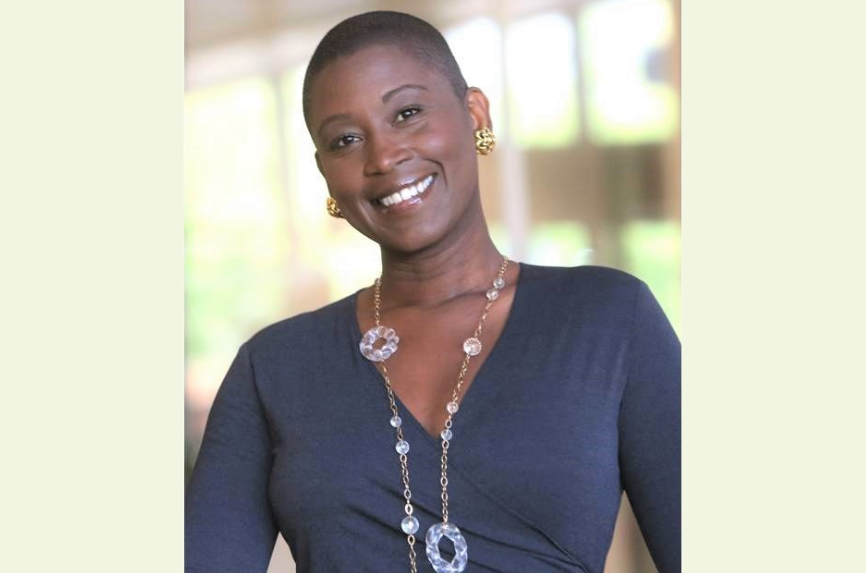Hastings Center News
Bioethics Chats: Michele Goodwin
Michele Goodwin, JD, LLM, SJD, is the Linda D. & Timothy J. O’Neill Professor of Constitutional Law and Global Health Policy at Georgetown University and a Hastings Center Fellow. She helped establish and shape the field of health law and is a prominent voice in the media. She hosts the popular podcast On the Issues with Michele Goodwin at Ms. Magazine and is an award-winning author, with opinion pieces in the New York Times, The Atlantic, and many other publications. Ravitsky and Goodwin recently spoke at the Lake Nona Impact Forum, in the first bioethics session the Forum has ever hosted. Below they are chatting about reproductive justice – one of Goodwin’s areas of work – and the challenges she sees today. She has advice for early-career scholars that may seem surprising coming from someone as accomplished as she is. The conversation has been edited for clarity.
Vardit: What are the biggest challenges you currently see in reproductive justice?
Michele: There’s enormous, underreported violence with regard to reproductive health, rights, and justice. In the last 50 years, there have been nearly 50 bombings of clinics that provide abortion care services. Doctors have been murdered, nurses have been harmed, patients have been harassed. And in his first week in office, the newly elected president pardoned individuals who have been convicted of violating the federal law that protects doctors and patients who go into abortion clinics. And so top of mind is the safety of patients who are seeking medical care, including reproductive health care. And it’s top of mind that there are lawmakers proposing the death penalty for individuals who seek to terminate a pregnancy, as well as for doctors who participate in providing that health care.
But it’s also top of mind for me that we must maintain a sense of how to move forward. We cannot be helpless in these times, no matter how hopeless they may seem. There are people who truly care about protecting and preserving health, who are moved by longstanding principles of ethics in medicine. And it’s important that they continue to speak, do their research, advocate for patients and medical providers, and realize that our work is not just of the moment and of the day. Our work is truly timeless. That’s part of how we move forward.
Vardit: Hopeful, not helpless. That resonates with me. You do so much work with the media. What advice can you give bioethicists who might be nervous about giving interviews?
Michele: The first thing I would say is, put the nervousness aside. No one is expecting the communication to be perfect. Scholars can also take the richness of their scholarship and turn it into op-eds. This is a great way of getting their voices out there and translating their scholarship into material that the public can digest and also that journalists can then utilize.
Vardit: A good place to start is Hastings Bioethics Forum.
Michele: Yes, absolutely. Some used to believe that if it wasn’t the New York Times, they didn’t want to publish there. I would caution people against that instinct for a few reasons. One, although the New York Times is the most visible paper of record, at least online it is no more visible than other publications.
Scholars should also think about their local newspapers, especially if the issues they are concerned with are close to home. For example, if the issue is reproductive health rights and justice, and women are being helicoptered out of Idaho, where abortion is illegal, to a state where it is legal, then for local impact you should consider writing an op-ed for the local Idaho newspaper.
Vardit: That’s great advice. On a more personal note, what are you reading for fun?
Michele: I am rereading a book that I have read countless times: Jane Eyre. I’ll tell you why I’m drawn to this book. Jane Eyre is a story of girls, independence and autonomy, women striving, moving forward with their principles and values. There are flashpoints about slavery and a position against it. There’s a critique of wealth-based systems in the UK. I find it inspiring.
Something else that I am rereading is Citizen by Claudia Rankin. I think it’s an important book for these times. It addresses issues such as: Who are we? How do we engage with each other? How do we show, in a deep and meaningful way, respect towards one another? What does it mean to be a citizen? I’ve been thinking about these questions a lot lately. I love literature and what it does for the mind.
Vardit: And what do you do for fun – that is less brainy?
Michele: I enjoy gardening. We recently moved to Washington, DC, and I am looking forward to establishing my garden. I enjoy the possibility of growing things that aren’t anticipated in a particular climate. So, I’m going to try to grow lemons.
Vardit: What advice can you give early-career researchers about how to be impactful in bioethics?
Michele: I would say, prepare, prepare, prepare. Have a standard of excellence. Avoid shortcuts. Don’t be afraid of writing multiple drafts.
I’ll add that sometimes people think they should land at the highest-ranked place when they are starting out. I don’t agree with that philosophy, and I’ve advised scholars against it. You should go where you can blossom. You want to think about colleagues who will support you. What you need is an ecosystem where your mind can flourish.
Vardit: Thank you so much, Michele, for your wonderful insights.

